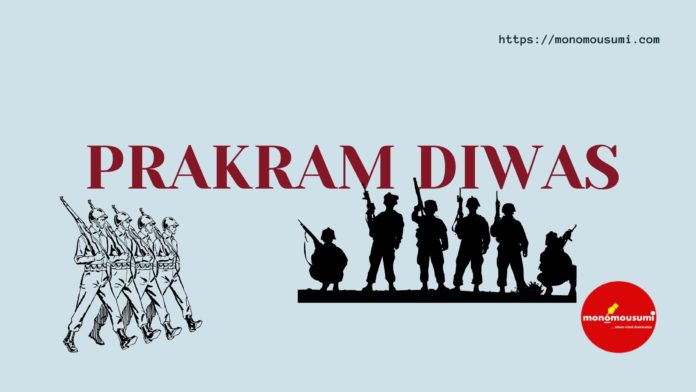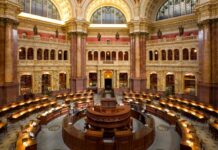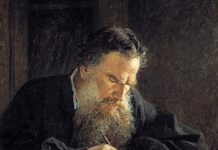A nation is built on the shoulders of those who love it. Love which encourages us to do selfless service, sacrifice our lives for our motherland. One such great leader and revolutionary freedom fighter , who is the epitome of courage and bravery , who sacrificed his life for the nation is Netaji Subhash Chandra Bose whose tremendous love for the country gave shoulder to the national movement and fought for the liberation of India. He gave a new vision and a new definition to the national movement. In order to honour and remember Netaji’s indomitable spirit and selfless service to the nation, the Government of India had decided in January, 2021 to celebrate Bose birthday on January 23 every year as “Parakram Diwas” to inspire people of the country especially the youth to act with fearlessness in the face of adversity as Netaji did and to impart in them the spirit of patriotism. The Parakram Diwas remarks the bravery, sacrifices, values of selfless service of the unforgettable National law, Netaji Subhash Chandra Bose.
Netaji played an unparalleled role in liberating our motherland from the yoke of British rule. Bose, with his vision and exceptional intelligence gave a new meaning and definition to the freedom. Bose’s struggle for freedom proved to be an inspiration not just for India, but also for other colonized countries. Netaji’s status established him as the “hero of the freedom” worldwide. Netaji’s life is a story of struggle. It is the story of a insightful leader that tells the story of consciousness, dynamism, struggle and success in every eyes, one who is yearning to achieve his goal and if he wants freedom, he is ready to spill his blood. He believed that India is a land loved by God and no power on earth could keep it enslaved.
He was born in Cuttack to Prabhavati and Janaki Nath Bose. From a very young age, Bose was deeply influenced by Aurobindo Gosh and Swami Vivekananda. He was a brilliant student who always excelled in academics. He cleared the ICS with flying colors but later left ICS and dedicated his life to the motherland. Not only he embraced the freedom movement whole heartedly, but also become an inspiration for freedom. He started preparing to awaken the country with the slogan “give me blood and I will give you freedom”. In 1927, he founded the Independence league. Bose was jailed several times for his suspected role in violent acts. He wrote “The Indian Struggle, 1920-1934” describing the scenario of India under colonial power. In 1938, he was chosen as the President of the Indian National Congress and formed a national planning committee, which outlined policy of industrialization. In 1939, he was chosen as the President of Indian National Congress for the second time but later, in 1939 he resigned from the Presidentship of INC due to ideological conflicts with Gandhi and INC and formed ‘Forward Bloc.’ He supported the complete independence of India. On the other hands, the Congress committee initially wanted independence in phases, through dominion status and this led to differences between them. Moreover, Gandhi followed the path of non violence while Netaji was the supporter of violent resistance and this created ideological differences among them. He sought Cooperation of Germany and Japan against British Empire. In 1943, he took over the Indian Independence Movement in East Asia from Rash Behari Bose in Singapore and presented it as “Azad Hind Fauj” (Indian National Army) comprising mainly of Indian prisoner of war. He gave the slogan “Dilli Chalo” with a new spirit and filled new energy among the youth of the country. In a visionary move, he established a women’s regiment in the INA. The Rani of Jhansi regiment, comprising several hundred women soldiers was led by Captain Lakshmi Sehgal. Azad Hind Fauz crossed the Burma border, and stood on Indian soil in 1944. However, defeat of Japan and Germany in the Second World War forced INA to retreat and it couldn’t achieve its objectives. Thousands of soldiers of his strong army sacrificed their lives for the country. Indian soldiers have him the title “Netaji”. Since then, he has been popularly known as Netaji among the people. Bose was the first to address Mahatma Gandhi as “Father of Nation.” On August 18, 1945, reportedly, Subhash Bose died mysteriously in an air crash at Taipei. Netaji incarnated his idea into thousands lives, especially among the youth who led milestone in the history of independence. The British faced massive blow and realized that the veins and blood of the Indian are filled with patriotism and their service for the nation was more powerful than the British power.
Netaji’s unparalleled patriotism and bravery have made him a role model for the young men and women of the country. He lives within our hearts, minds and works as a leading light and source of inspiration for generations to come. He was a fearless leader of extraordinary character. The immortal ideas of Netaji give us the strength and fortitude to tide through the crises and live up to his ideals. Those rare ideas will continue to inspire us.
By Nishi Sharma, New Delhi
















